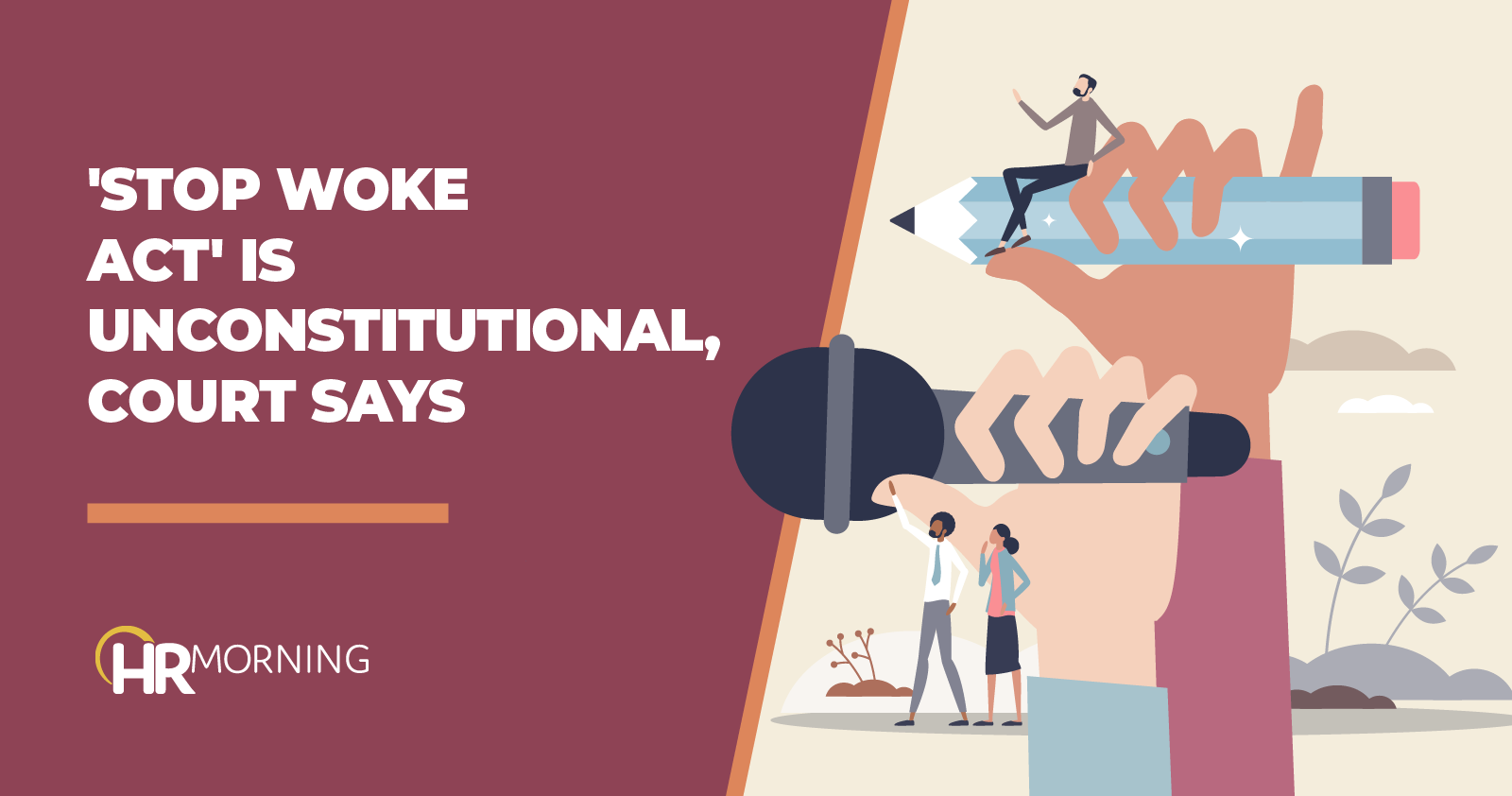A Florida law that targets “wokeness” violates the free speech rights of employers, a federal appeals court has ruled.
The U.S. Court of Appeals for the Eleventh Circuit backed a lower court’s decision to block the law’s enforcement.
At issue in the case is a Florida law named the Individual Freedom Act, dubbed by some as the Stop WOKE Act.
The law says employers may not force their employees to attend any “required activity,” such as training or instruction, pertaining to a specific categorical list.
What the law says
Specifically, the law bans employers from forcing employees to hear that:
- Members of one race, color, sex or national origin are morally superior to members of another race, color, sex or national origin.
- Individuals can be inherently racist, sexist or “oppressive” based on their race, color, sex or national origin.
- A person’s moral character or status as privileged or oppressed is determined by their race, color sex or national origin.
- Members of one race, color, sex or national origin should not try to treat others without respect to race, color, sex or national origin.
- People are responsible for past actions of other members of their same race, color, sex or national origin.
- People should be discriminated against based on their race, color, sex or national origin to achieve diversity, equity or inclusion.
- People must feel psychological distress because of past actions of others of the same race, color, sex or national origin.
- Virtues like excellence and hard work, among others, are racist or sexist, or were created by members of a particular race, color, sex or national origin to oppress others.
Violators face penalties including up to $100,000 in punitive damages.
Lawsuit challenges Stop WOKE Act
Honeyfund and Primo Tampa, two companies that wanted to host mandatory DEI training, sued to allege that the law violates their free speech rights. They were joined by a consulting firm that provides such training, along with the firm’s founder.
Florida defended the law by saying it is simply a law against discrimination. A federal trial court was not convinced, and it granted a preliminary injunction to block the law’s enforcement. The trial court said that the law is unconstitutionally vague and that it unlawfully restricts speech based on content and viewpoint.
The state sought further review at the Eleventh Circuit appeals court.
A three-judge panel of the Eleventh Circuit affirmed the trial court’s decision.
The law targets speech based on its content, the appeals court said, meaning it can be justified only if it is narrowly tailored to serve compelling state interests. Speech restrictions based on viewpoint are even harder to justify, it said, and in fact are “likely even invalid per se.” It noted the state’s acknowledgment that the law sets viewpoint-based restrictions.
The speech/conduct distinction
The appeals court rejected the state’s argument that the law should not be subjected to those burdensome standards because it regulates conduct rather than speech.
The only way to tell what training the law bans is to find out whether the speaker disagrees with the state, the court explained. States cannot regulate conduct as a smokescreen to regulate speech, it said.
Applying the strict scrutiny test, the appeals court said Florida does not have a compelling interest in creating a rule that says some speech is offensive and discriminatory “regardless of its context or the effect it has on the listener.”
Even if the law helped fight discrimination, it was too broad, the court added.
“[T]he law bans speech even when no one listening finds it offensive,” it noted.
One last shot
Left to grasp at straws, the state finally argued that if its law is unconstitutional, then Title VII is as well – because both ban discrimination.
But the latter law is not directed at speech, the appeals court said.
The Florida law illegally bans speech and should not be enforced, the court decided.
The lower court’s ruling was affirmed.
Honeyfund.com Inc. v. Governor, State of Florida, No. 22-13135 (11th Cir. 3/4/24).


